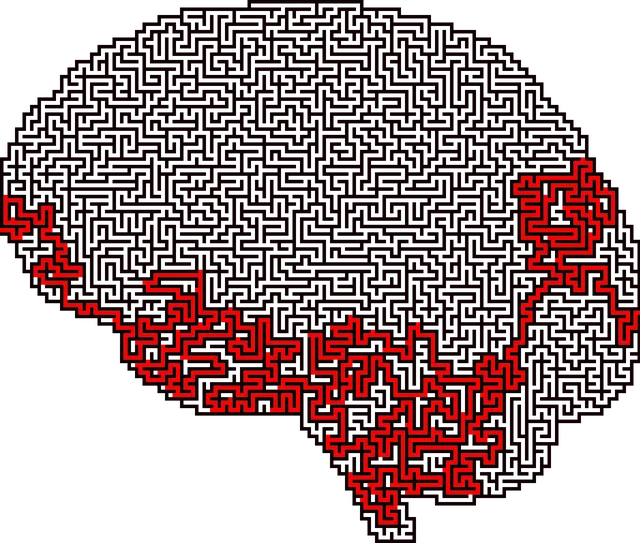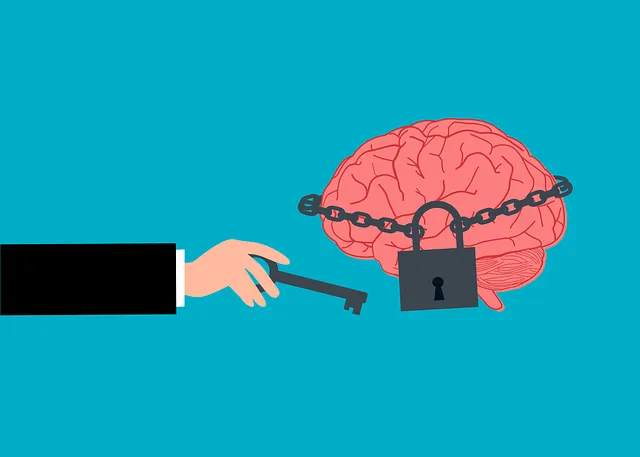The Boulder Kaiser Permanente mental health appointment center excels in crisis intervention through its comprehensive training program, combining advanced clinical skills, emotional intelligence, and cultural sensitivity. Their approach includes practical conflict resolution techniques, Mental Wellness Journaling, mindfulness meditation, and mood management strategies. To overcome challenges in large organizations, structured programs with tailored exercises, self-awareness practices, and flexible formats are implemented. The effectiveness of their CIT training is measured through participant satisfaction, improved conflict resolution skills, and reduced emergency room visits, showcasing enhanced community mental health support.
In today’s digital era, effective crisis intervention teams (CITs) are a crucial resource in mental health care. As bustling appointments centers grapple with increasing demand and complex patient needs, well-trained CITs can make a significant difference. This article explores the vital role of these teams, using the Boulder Kaiser Permanente model as a leading example. We delve into key training components, address implementation challenges, and discuss evaluation metrics to ensure successful programs, ultimately enhancing mental health support in appointment centers.
- Understanding Crisis Intervention Teams: A Necessary Resource in Mental Health Care
- The Boulder Kaiser Permanente Model: A Leading Example for Training Programs
- Key Components of Effective Crisis Intervention Team Training
- Challenges and Solutions in Implementing Crisis Intervention Training at Scale
- Measuring Success: Evaluation Metrics for Crisis Intervention Team Training Programs
Understanding Crisis Intervention Teams: A Necessary Resource in Mental Health Care

In today’s complex social landscape, Crisis Intervention Teams (CITs) have emerged as a vital resource within mental health care systems, such as the Boulder Kaiser Permanente mental health appointment center. These specialized teams are designed to provide immediate and effective support to individuals experiencing severe emotional crises or psychological distress. CITs typically consist of trained professionals from various disciplines, including social workers, psychologists, and law enforcement officers, who collaborate to offer comprehensive assistance. Their role is crucial in de-escalating high-risk situations, promoting stable recovery, and preventing adverse outcomes.
The primary objective of CIT training programs is to equip participants with the necessary skills and knowledge to handle crisis scenarios with sensitivity and professionalism. Through interactive workshops and simulations, trainees learn empathy-building strategies that foster meaningful connections with individuals in distress. By enhancing self-esteem improvement and boosting confidence, these teams are better equipped to provide person-centered care, ensuring every individual receives tailored support. This holistic approach not only benefits the clients but also contributes to the overall well-being of the community by fostering a more responsive and compassionate mental health care system.
The Boulder Kaiser Permanente Model: A Leading Example for Training Programs

The Boulder Kaiser Permanente mental health appointment center has emerged as a leading example for crisis intervention team training programs, showcasing an integrated approach that combines advanced clinical skills with robust emotional intelligence and cultural sensitivity in mental healthcare practice. Their comprehensive curriculum emphasizes practical applications of conflict resolution techniques tailored to diverse community needs, ensuring that trainees are equipped to handle a wide range of crises effectively.
One standout aspect of their program is the emphasis on Mental Wellness Journaling Exercise Guidance. This component encourages participants to reflect on their experiences and emotions during simulations, fostering personal growth alongside professional development. By integrating such exercises, Boulder Kaiser Permanente cultivates an environment where cultural sensitivity in mental healthcare practice is not just taught but also deeply internalized, preparing crisis intervention teams to offer compassionate and culturally responsive support in real-world scenarios.
Key Components of Effective Crisis Intervention Team Training

Effective crisis intervention team training programs are multifaceted, aiming to equip healthcare professionals with essential skills for managing critical situations. One key component is Mind Over Matter Principles, which focus on enhancing emotional regulation and communication techniques. By fostering a deep understanding of mental health challenges, team members can de-escalate tensions and provide compassionate support during crises.
The programs also emphasize the importance of Mindfulness Meditation as a tool for stress reduction and improved focus. This practice enables team members to remain calm under pressure, enhancing their ability to make clear, thoughtful decisions. Additionally, training should incorporate Mood Management strategies, teaching participants how to recognize and address changes in patient mood effectively. Such comprehensive training, modeled by centers like Boulder Kaiser Permanente’s mental health appointment center, ensures that crisis intervention teams are well-prepared to handle diverse and complex situations.
Challenges and Solutions in Implementing Crisis Intervention Training at Scale

Implementing crisis intervention training at scale presents unique challenges, particularly in diverse and large organizations like Boulder Kaiser Permanente mental health appointment centers. One significant hurdle is ensuring consistent delivery and comprehension of critical skills across a wide range of staff members. To overcome this, structured programs that include both theoretical knowledge and practical exercises are essential. These should be tailored to accommodate various learning styles and busy schedules.
Effective solutions involve integrating Self-Awareness Exercises and Emotional Regulation techniques into the curriculum, enabling professionals to manage their own emotional states during high-stress situations. Additionally, promoting Self-Care Routine Development for Better Mental Health is crucial for sustained performance. Flexible training formats, such as interactive workshops and online modules, can enhance accessibility and engagement while addressing these challenges.
Measuring Success: Evaluation Metrics for Crisis Intervention Team Training Programs

Evaluating the success of Crisis Intervention Team (CIT) training programs is paramount to ensuring their effectiveness in enhancing community mental health support. The measurement of success should encompass a multifaceted approach, aligning with the unique goals and context of each program, especially those operated by organizations like Boulder Kaiser Permanente Mental Health Appointment Center.
Key evaluation metrics could include the post-training satisfaction levels of participants, as gauged through comprehensive surveys. Another crucial indicator is the subsequent improvement in conflict resolution skills demonstrated by CIT team members during real-world interactions, such as those involving individuals experiencing mental health crises or high-risk situations. Additionally, tracking the reduction in emergency room visits and hospitalizations related to mental health issues within targeted communities over time can serve as a robust measure of program impact, highlighting the potential for depression prevention and improved mental wellness.
Crisis intervention team (CIT) training programs are essential components of modern mental healthcare, as evidenced by the successful Boulder Kaiser Permanente model. By integrating key components such as comprehensive curriculum, role-playing exercises, and ongoing evaluation, these programs equip healthcare professionals to handle crises effectively. While challenges like scalability and resource allocation persist, innovative solutions and robust evaluation metrics ensure CIT training continues to enhance patient outcomes at Boulder Kaiser Permanente mental health appointment centers and beyond.




